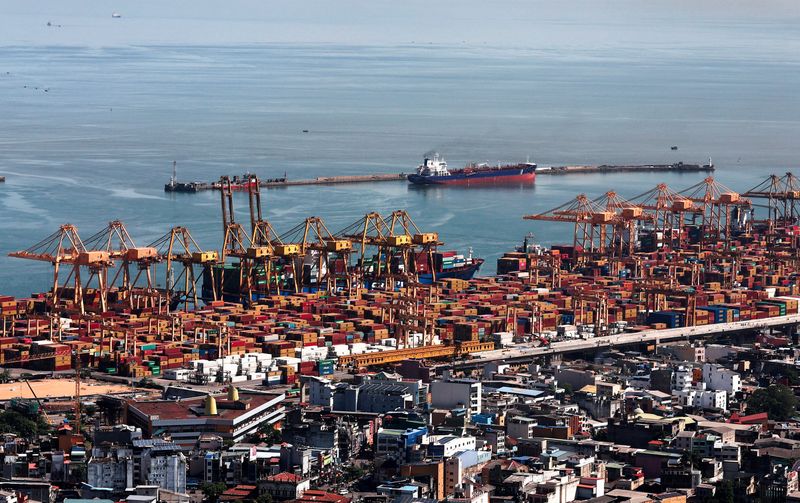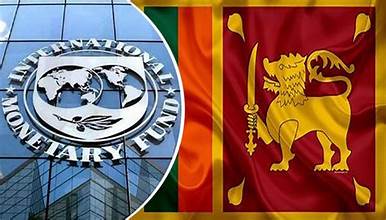- Cabinet approval for Bill given earlier this month
- Bill sets ambitious economic targets for SL for next two and half decades
- Economic Commission of SL will replace the BOI
- Bill will mandate targets set under Sri Lanka’s $2.9 billion International Monetary Fund program
- New law will provide for National Policy on Economic Transformation for restructuring of Govt. debt
- Allege real purpose is to secure financial benefits by transferring 15 profitable and well-operating Investment Zones under BOI to their associates before elections– BOI Unions
The Government has gazetted the Economic Transformation Bill which sets ambitious targets for the country’s economy for the next two and a half decades.
The new Bill was gazetted by the office of President Ranil Wickremesinghe in his capacity as the Minister of Finance, Economic Stabilization and National Policies. Cabinet approval to present the Bill to Parliament was given earlier this month.
The Bill provides for a National Policy on Economic Transformation and for the establishment of the Economic Commission, Investment Zones Sri Lanka, Office for International Trade, National Productivity Commission, and Sri Lanka Institute of Economics and International Trade.
The new Bill will repeal the Board of Investment (BOI) of Sri Lanka Law, No. 4 of 1978 and replace the BOI with the Economic Commission of Sri Lanka.
The National Policy on Economic Transformation provides for the restructuring of the debt owed by the Government.
The objectives of the Bill is for Public Debt to Gross Domestic Production ratio to be maintained below 95% by 2032 and thereafter, the central government Annual Gross Financing needs to Gross Domestic Production ratio be to be kept below 13% by 2032 and thereafter and the central government Annual Debt Service in foreign currency to Gross Domestic Production ratio to be below four decimal half per centum by 2027 and thereafter.
The policy also aims at transformation of Sri Lanka to a highly competitive, export-oriented, digital economy including diversification and deep structural changes of the national economy to boost competitiveness; achieving Net Zero by the year 2050; increasing integration with the global economy; achieving stable macroeconomic balances and sustainable debt; modernize agriculture to boost farmer productivity, farmer incomes, and agriculture exports and promote inclusive economic growth and social progress.
Once the law is enacted, it shall be the duty of the Cabinet of Ministers charged with the direction and control of the Government of Sri Lanka under Article 43 of the Constitution, to base the National Policy on Economic Transformation on the following targets, namely Gross Domestic Production growth to reach 5% annually by 2027 and above 5% annually thereafter.
It also aims at keeping unemployment below 5% of the labor force from the year 2025; female Labor Force Participation to reach not less than 40% by 2030; and not less than 50% by 2040.
The Economic Commission to be established under his law will contribute to the creation and maintenance of a robust investment climate, the promotion and facilitation of sustainable foreign direct investment which will stimulate international trade by the increase of exports and increase employment opportunities for the citizens of Sri Lanka.
The Commission will also evaluate the need for Investment Zones in Sri Lanka and provide guidance and regulatory oversight for the operation and management of such zones, promote and enable the ease of doing business for investors, investments and exporters.
The Commission will also determine the investments which are of strategic importance which include significant inflows of foreign exchange into Sri Lanka by way of foreign direct investment, the export of goods and services, and large-scale employment within Sri Lanka, and which result in significant benefits to the overall development of the economy.

A resistance from BOI trade unions
Meantime all Union Alliance of the Board of Investment of Sri Lanka yesterday warned that the proposed Investment Transformation Act to be submitted to Parliament on 22 May will plunge the investment sector into a severe crisis.
In a statement, the coalition warned that implementing this act, which caters to the interests of a few individuals, without consulting experts or investors in the field, will create a perilous situation where investors, who have remained despite the economic crisis, will choose to leave the country. Therefore, it is emphasised that the act should be revised transparently, involving directly affected parties as well as economic and investment experts.
Though it is claimed that this act will bring about significant economic transformation, it is evident that the real purpose is to secure financial benefits by transferring the 15 profitable and well-operating Investment Zones under BOI to their associates before the elections.
The Act itself empowers the entity “Sri Lanka Investment Zones” established by this Act to entrust the establishment, management and operation of Investment Zones to another private entity as a partnership, joint venture or under a management agreement.
Currently, there are 15 investment zones governed under the Board of Investment of Sri Lanka. Out of these 15 investment zones, about 95% of the land in 12 are currently occupied by investment projects, and those projects are being maintained very well with the support of the Board of Investment.
It is no secret to investors that the Board of Investment worked tirelessly day and night to ensure that all BOI zones were fully operational during the COVID pandemic. BOI employees played a crucial role by providing essential services such as fuel, curfew permits, transportation, and establishing medical centres for COVID patients.
Furthermore, all 15 investment zones under BOI are currently operating profitably. Therefore, what is the rationale behind privatising these zones? Could this be merely an endeavour to create a legal framework to sell profitable institutions to personal acquaintances and extract funds surreptitiously?














